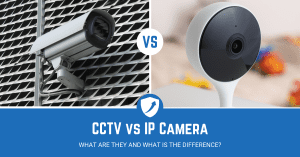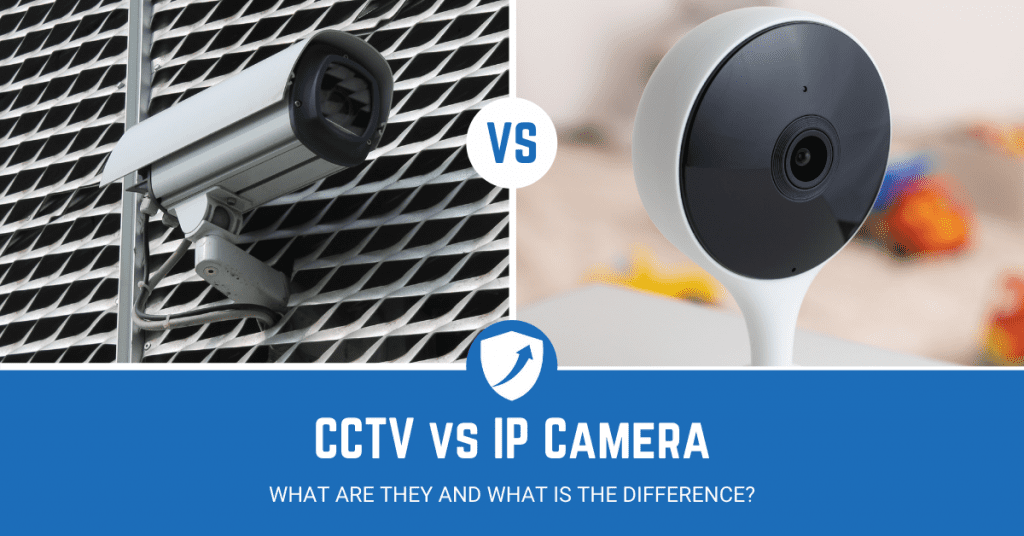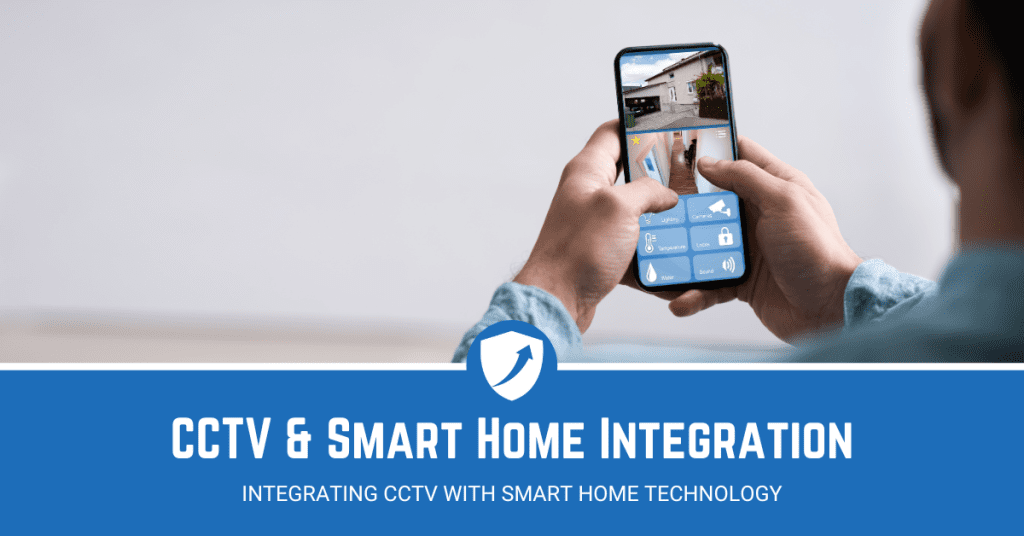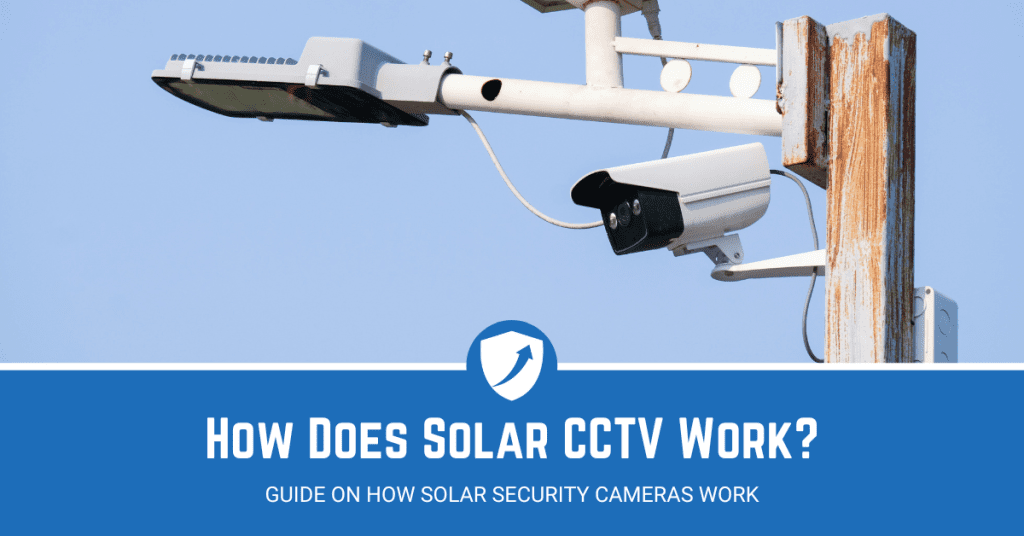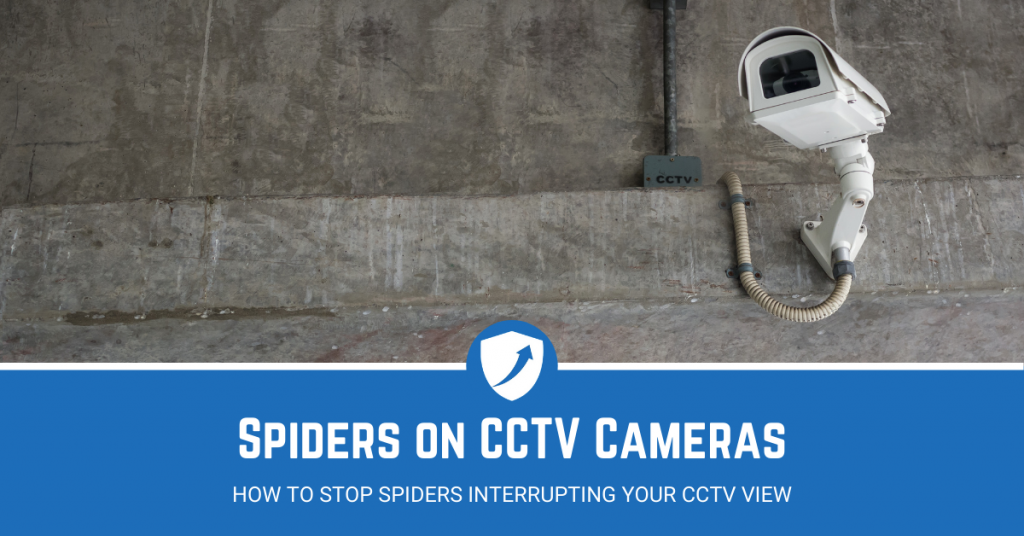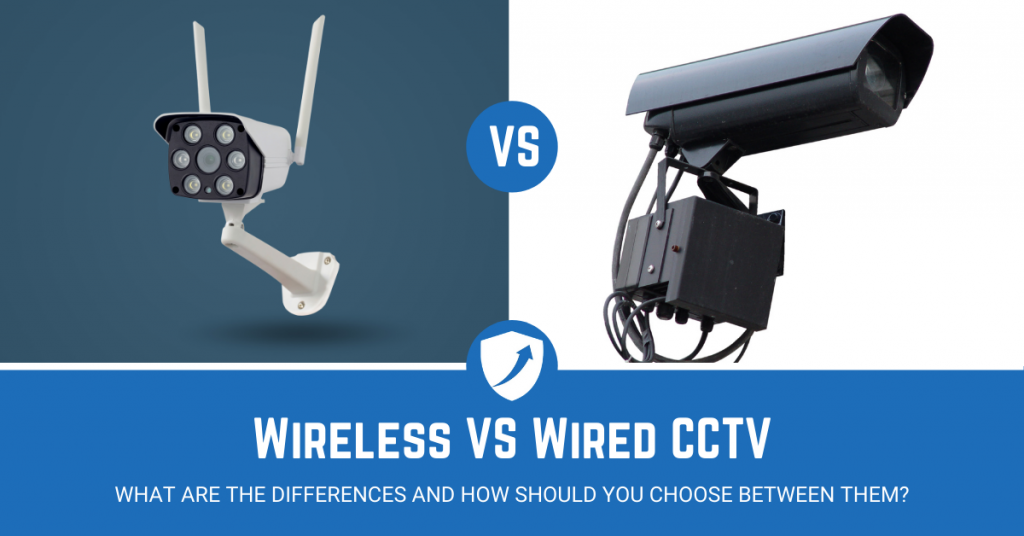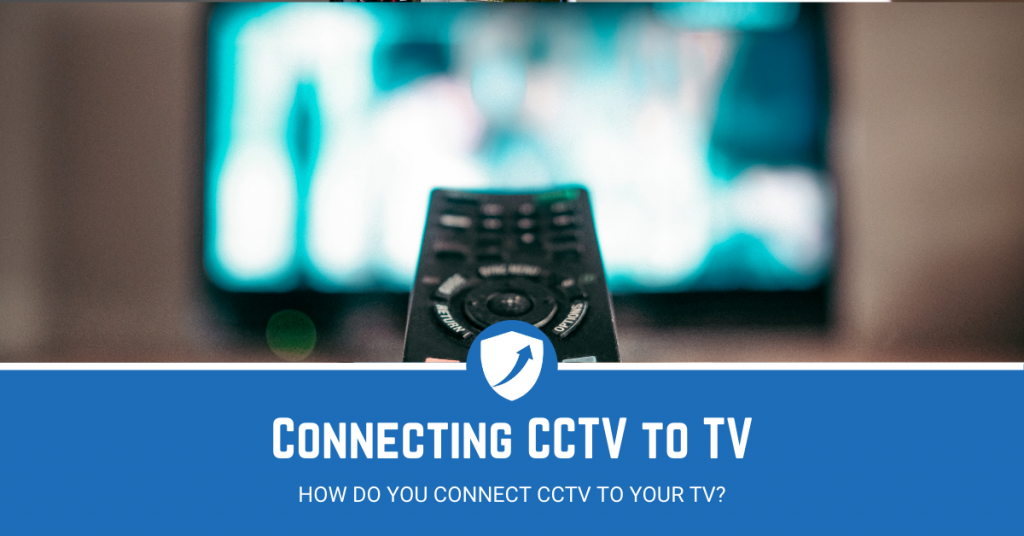When people think of surveillance technology they will often think of a traditional wired CCTV camera and rarely consider the innovations and evolution of the industry.
As CCTV has been around in the form most of us would recognise it since the 1980s, but there were military uses for CCTV prior to that too, specifically in WW2 in the early 40s.
In this short guide, we will be exploring IP cameras and their differences from traditional CCTV set-ups, looking at the background of each of the technologies and their benefits.
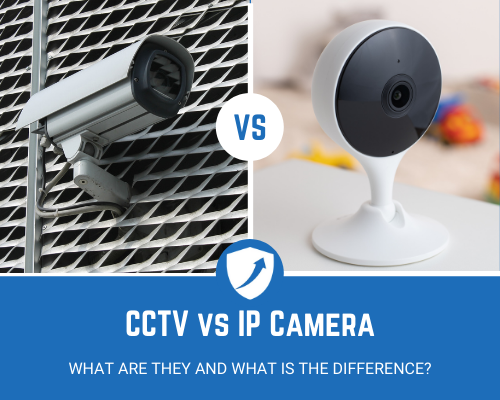
By the end of this guide, you will have a much clearer idea of what an IP camera is and its importance in a modern surveillance landscape.
- IP Cameras Background
- CCTV Background
- Benefits of IP Cameras
- Benefits of CCTV
- IP Cameras vs CCTV – 4 Differences
- Summary
What's in this Guide?
What are IP Cameras?
An IP or Internet Protocol camera is a device that transmits its data via the internet or local area network. An IP camera allows for the video feed to be viewed regardless of the viewer’s location.
The majority of IP cameras will highly compress the captured data which allows them to simultaneously be high quality and viewed easily.
Typically, you can view your video feeds via a website login or the manufacturer’s app which makes it incredibly accessible for anyone.
Being able to view the feeds wherever you are has a whole host of benefits, from increased security to peace of mind when you’re away to removing the need for costly CCTV monitors and camera setups.
People will often confuse an IP camera with a wireless CCTV camera, and although an IP camera falls under this category it is a separate entity.
Despite the name, wireless cameras may still need wires to be connected to the power. The wireless part comes from how the data is transferred.
There are however an emerging category of solar CCTV cameras that don’t need to be connected to power. They’re becoming increasingly popular for those looking for flexible placement of our security cameras.
What is CCTV?
When we refer to CCTV, most people are talking about a wired camera setup, which is still one of the most popular installation types around the world. Although surveillance and security has come a long way since its inception some people will always trust the tried and true method.
There are a few types of CCTV cameras but all wired cameras have similar attributes, to oversimplify, there are two major styles of wired CCTV cameras, POE cameras and the traditional wired cameras.
A traditional wired CCTV camera has two cables attached to it, one for its power and the other to transfer captured footage to a storage unit such as a DVR.
On the other hand, Power over Ethernet (PoE) cameras get their power and transfer data via one cable, this not only makes the installation easier but also is more reliable.
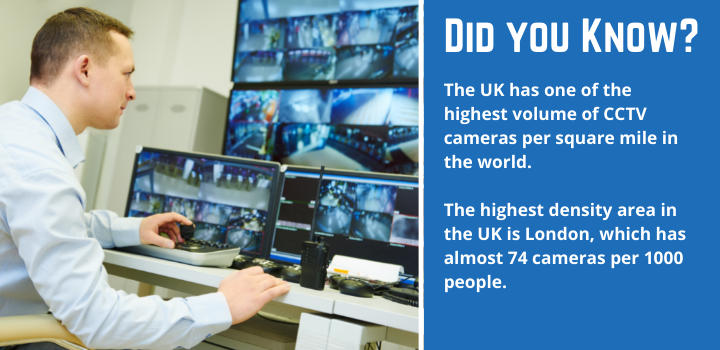
What Are The Pros of IP Cameras?
View 24/7
One of the major benefits of having an IP camera installed is the ability to view the camera feed wherever you are at any time you please. Having this option means you can feel a lot more secure about your premises when you are away.
If you are working with a different camera setup you may have to physically be at the location to see the footage that is linked to a CCTV monitor and DVR, thus making it unhelpful if you are not there.
Additional Features
In addition to normally being higher quality cameras, you can have features such as push notifications, false alarm reduction and human detection to create a much more secure and protected environment.
These can actually help you decide on a camera as they can be incredibly helpful, especially if you are away a lot or have multiple locations, entrances or buildings.
Subtle
It is a lot more common than you think that people do not like the look of a traditional CCTV camera, and people do not like being watched. In fact, people will actively change their behaviour if they know they are being observed.
With this in mind, the presence of an IP camera is much less overt and with their flexibility of placement they can be installed in more subtle locations and reduce the feeling of being watched.
What Are The Pros of CCTV?
Deterrent
As a counterpoint to the above, having a visible camera can be a big benefit in deterring criminals from even attempting to commit a crime. Having easy to spot cameras can be a blessing for your security as CCTV cameras have been proven to reduce crime.
Being able to be proactive in your security is always more useful than reactive measures, stopping a crime from even happening will always be the preference.
Effective
There is a reason why CCTV cameras have been so popular for such an extended period of time, and that is because they work. As we have discussed above, they can be a great deterrent and stop crime before it even happens.
There is no doubt that the exact technology and styles have developed over time, but there is still a huge percentage of users who swear by the traditional CCTV camera setup.
Reliability Over Time
Traditional CCTV cameras will provide your business with a viable solution for an extended period of time, they are often robust and well made to withstand a beating. Depending on which camera you get and where it is installed, they can work for 10-15 years with no major issues.
It is important to remember that you need to maintain your cameras and also pick one that is somewhat future proof, if you are planning on having the camera for a while it is recommended to spend a little more to get a better model that will last.
What Are The Main Differences Between IP Cameras and CCTV?
Connectivity
An important point of differentiation between IP and CCTV is the reliance on a stable connection to transmit the data. An IP camera needs to have a good local or WiFI connection to provide the best quality and no dips in the footage.
As long as there is no damage to the cable used for a traditional CCTV camera you are unlikely to have any issues with the picture clarity. It is important to note however the differences in camera resolution, for instance, 720p vs 1080p is not a ‘360’ difference but 1080 is over double the resolution of 720p.
Placement
Setting up a CCTV camera and setting up an IP camera are two very different processes. As we have alluded to, and as the name suggests, a wired CCTV camera needs to be physically connected with between one and two cables to the full CCTV system.
As opposed to the IP camera which will connect wirelessly to your network, thus, this means you have a lot more freedom where you place it.
Installation
As the above point touches on, it is much easier to install an IP camera as opposed to the traditional wired CCTV setup which is not as simple to install.
You can probably set up an IP camera without anyone else’s help, whereas a CCTV camera will often need an expert’s help to install the wiring and cameras effectively. This can increase the cost of your CCTV installation and will negate the often cheaper cost of a wired system.
Cost
The cost you need to factor in is not limited to the actual cameras themselves, as on the surface an IP camera is often more expensive as a unit, but does not require other pieces such as wiring, help with installation, a CCTV monitor and video recorder i.e. an NVR or DVR.
When you start factoring in the other costs you will realise that often the setup of an IP camera can be much more budget-friendly than the traditional CCTV camera method.
IP Camera vs CCTV Summary
Hopefully, now you have a better idea about these two technologies and which is more viable for you. It is important to note that there is no magic answer when it comes to security technology and what works for one company may not be suitable for another.
Everyone’s security needs are unique to them, so it is always important to do your research and work out what will be the best option for your surveillance needs.
Needless to say, the decision can often be made by factors outside of your control, for instance, your budget or your WiFi availability.
Remember that having some form of security system is always better than not having one at all, but the effectiveness of that security system is what comes into question when you pick the wrong one.
With all of that being said, best of luck on your search for the perfect security solution for your business or home. We post new content frequently surrounding CCTV and security, so make sure you check out our other security blogs and guides.


